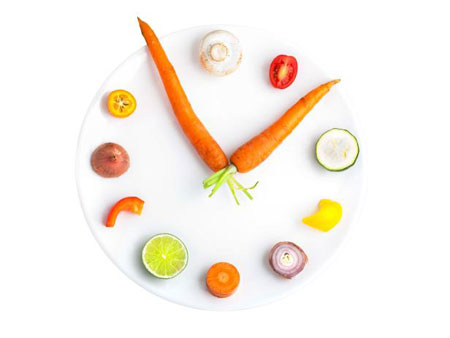Nutrition After Gastric Sleeve Surgery
How Nutrition Should Be After Gastric Sleeve Surgery?
Welcome to your new life!
Your old eating habits will no longer take place in your next life.
Proper nutrition is also extremely important after bariatric surgery.
If you say, "I have had the surgery, now I can eat and drink whatever I want", all your efforts will not mean much.
Healthy eating habits that you will make a lifestyle will crown the success of the surgery.
In order not to be “overweight” again, we will have a new nutrition culture.
We will live in harmony with the principle of balanced and adequate nutrition instead of high-carbohydrate, energetic and bulky meals.
In our new life, we will switch to a protein-rich diet.
Here is our diet plan!
Let's take a look at the diet that we need to follow in terms of both losing weight and having a healthy body mass index, as well as for your stomach and your health.
Liquid Food for 3 weeks
Grained Liquid Foods on the 4th week
Purees on the 5th week
Solid Foods on the 6th week
Do not forget that the success of your surgery is related to fully complying with the dietary patterns we have shared with you, step by step.
FIRST 3 WEEKS AFTER SURGERY: Clear Liquid Diet
The Following Foods Can Be Consumed During This Period:
Clear Fluid Treatment at Home
Water
Weak tea
Tea with lemon
Lemonade without sugar
Cold tea without sugar
Composte without sugar
Apple juice without sugar
Beef or Chicken broth,
Well-blended vegetable juices (without grains))
The doctor may recommend 1/3 or half a scoop of hydrolyzed whey protein powder per day if needed.
POSTOPERATIVE 4th WEEK: Grainy Liquid Diet
The Following Foods Can Be Consumed During This Period:
Granular, Liquid and Well Blended Food Treatment at Home
Tarhana soup
Chowder
Rice, yoghurt and mint soup (by straining the rice)
Vegetable soup (should be finely ground and grain-free)
You can add seasoning to your soups (for example, you can sweeten it with yoghurt, egg and lemon. Flour should not be used).
A warning: Lentil soup should never be consumed.
Then we say goodbye to this soup for now.
POSTOPERATIVE 5th WEEK: Purees start!
Semi-liquid pureed, blenderized food treatment at home (foods high in protein, low in sugar)
The diet in this period predicts that mashed foods should be started as little-little, frequently-frequently according to the tolerance level of the person.
During this period, eating 4-5 meals a day and at least 2-3 hours apart will be the most appropriate treatment. Each serving should not exceed 2-3 tablespoons.
In order not to complicate digestion, liquids should be consumed at least 20 minutes before and 40 minutes after meals.
The Following Foods Can Be Consumed During This Period:
Chicken or turkey puree
Tuna fish puree
You can make your purees more delicious by cooking them in meat and chicken broth (mashed potatoes are forbidden).
Vegetable puree (except carrot puree). For example, squash puree (can be consumed with yogurt)
Minced meat that has not completely drained and dried can also be mixed into vegetable purees or soups.
Cauliflower, spinach, leek, broccoli
Light yoghurt
Fruit puree (no sugar added apple or banana puree can also be eaten at this stage.)
Depending on the person's condition, soft-boiled eggs, omelettes and/or menemen can be used gradually. Pepper and onions are prohibited in an omlette. Tomatoes used in menemen should be well grated.
Cheese (curd, labneh and soft cottage cheese)
Diet milk pudding (sweetened and liquid)
Additional protein powder and vitamin supplements can be added under the supervision of a doctor or, if added, can continue at this stage.
POSTOPERATIVE 6th WEEK: Switching to normal foods!
Congratulations!
As said, we are at a time in which ‘patience leads to salvation’.
At this stage, you are at a level where you can consume any food.
Of course, we are at a stage where you should not break the principle of healthy eating.
No spoiling or letting go.
Remember, you have worked hard to get to this point.
Let's make a reminder.
Considering that each individual has different tolerance levels to different foods, more than one different food type should not be started at the same time. Therefore, one should not act hastily at this stage. The most basic rule is to start a new food without hurrying, slowly, by chewing well and with small portions (in order to avoid vomiting and tension).
The Following Foods Can Be Consumed During This Period:
Meatball stew
Vegetable dishes with minced meat
Chicken, turkey (crushable with a fork)
Cheese, whole egg
Fish other than shellfish (shrimp, lobster, etc.)
Raw skinless fruits and salads can also be started if the person can tolerate it.
What to Avoid?
We will stay away from high and empty calorie sources, we will get near them.
The Following Foods Should Not Be Consumed During This Period:
Fast-food and fries
Sweet and sugary foods (cake, waffle, honey, jam, molasses, sugar gum, chocolate, etc.)
Sweetened fruit juices, carbonated/acidic drinks (cola, soda, etc.)
We recommend that you stay away from high-carbohydrate foods (mashed potatoes, pasta, ravioli, rice, pies, toasts, chips, etc.) and alcohol-containing beverages.
Hard-to-digest bulgur pilaf, raw vegetables and fruits (first 6-7 weeks)
• Ready-made canned foods should not be consumed.
What Should Be Considered After Sleeve Gastrectomy?
- To prevent fluid loss (dehydration), you should consume at least 1 liter per day and 1-5 liters in the following weeks. Urine color should be monitored throughout the day. If the color is towards dark yellow, you need to drink more water. If our urine is light yellow or white, it is an indication that you are well hydrated.
- Water is consumed at least 20 minutes before meals and again at least 40 minutes after meals. Liquid foods consumed with meals accelerate the passage of the stomach, leading to a feeling of hunger in a much shorter time and the expansion of the stomach volume.
- Meals should be chewed slowly and very well and consumed in small bites within at least 30 minutes.
- After the surgery, your stomach volume is reduced. For this reason, a feeling of fullness is reached when 2-3 spoons or 1 meatball-sized piece of meat is eaten. You should not eating by forcing yourself. Otherwise, you may experience a feeling of nausea or vomiting due to straining your stomach.
- In the first 2 weeks of your surgery, it is important that you consume the allowed foods every 20 minutes in order not to experience weakness and fatigue. In the following weeks, you can support the food chain as 3 main and 3 snacks.
- As an exercise, you can add short-term walks in the first weeks, and cardio and jogging after 6 weeks.
GENERAL SUGGESTIONS
- Liquid can be consumed at least 20 minutes before and 40 minutes after meals. Do not consume solid and liquid foods together at meals.
- You should make adequate and balanced nutrition a lifestyle. The habit of eating little little and frequently in 3 main meals and 3 snacks should always be provided.
- In a meal, the stomach should not be overly strained and the meals should be consumed slowly. You should never forget that your stomach is small and therefore you should spare at least 30 minutes to food.
- Food should be chewed very well before swallowing. For example, poorly chewed meat bites can block the gastric outlet, leading to vomiting. Meat should not be dried while cooking and should be left juicy. Meat should never be reheated and eaten. Meat reheated the next day dries out and becomes difficult to chew.
- Sugar and its derivatives, which are sources of "empty energy", should be avoided. After consuming such foods, hyperglycemia leads to hypoglycemia, triggering more sugar consumption, which can lead to a vicious circle.
- Every meal should be rich in protein as much as possible. Proteins are essential nitrogenous substances for our life, they are the main building blocks of the body, and therefore they must be taken from the outside in sufficient quantities for the body to repair and renew itself. In addition, proteins are nutrients that take longer to digest and metabolize compared to carbohydrates and fatty foods, thus providing longer satiety and also accelerating metabolism.
- In addition to healthy eating, you should definitely make physical activity a lifestyle change. At least 40 minutes of brisk walking a day will suffice. At least 150 minutes of exercise per week should be done.
- Care should be taken not to fall below the amount of water that should be taken daily. After the surgery, 1.5 liters of water should be consumed per day.
What are the foods that are recommended to be avoided after surgery?
All desserts (cakes, pastries, cookies…)
All fried foods
Sugar, sugary products (fruit yoghurt, chocolate, etc.).)
Sodas
Alcoholic beverages
Whole milk and products
Gums
Oily sauces (mayonnaise, cream, etc.)
Meats with skin
Very cold items such as ice cream, frozen yoghurt, milkshakes
Very salty foods (brines, preserves)
Pastries
How Nutrition Should Be After Gastric Bypass Surgery?
On the 2nd day after gastric bypass surgery, patients are tested for leakage and then we start a 15-day liquid diet period. Following the 15-day liquid diet period, 15 days of puree and then solid nutrition are started. Diet periods are carefully explained by your dietitian. The role of the dietitian in the postoperative period is extremely important for every patient. Compliance of patients with these diet periods is the most important factor in preventing side effects.
Patients need to master the habit of eating with small bites, chewing very well and slowly. Another rule in nutrition is to distinguish between solid and liquid. There should be a minimum of 30 minutes between foods and drinks. Thus, nutrient deficiencies are prevented and gastric expansion is prevented.
After the surgery, it is important to comply with a well-adjusted carbohydrate, protein and fat ratio, and fiber-rich nutrition programs. Approximately 60-80 g of daily protein is recommended for nutritional adequacy and postoperative wound healing. Food sources to meet this amount of protein may vary according to the adaptive capacity of the body. Over time, tolerance increases and consumption of protein-containing food sources expands. In addition, deficiencies of minerals such as iron, calcium and B vitamins are common after this surgery. This condition can cause iron deficiency anemia and osteoporosis. In addition to a nutritious diet, supplementation with B complex and multivitamins may be required to prevent potential deficiencies. Patients need to give up old habits such as consuming sugary and high-calorie foods frequently to prevent symptoms such as cramps and diarrhea caused by dumping syndrome and to gain new healthy eating habits.
What Should Be Considered After Gastric Bypass Surgery?
Definitely work with a specialist dietitian.
A balanced diet is essential for vitamin and mineral deficiency.
Consumption rate of solid foods should be reduced.
Low-carbohydrate-high protein-oriented nutrition programs should be organized.
All kinds of oil, sugar and carbonated foods and beverages should be avoided.
Caffeine and salt consumption should be minimized.
There should be 3 main meals, 3 snacks in a regular way.
Only fruits should be consumed between meals.
Food should be well chewed.
Water consumption should be 2.5 liters or more. These rates are not suitable immediately after the operation. It can gradually progress to 1 liter in the first week, 1.5 liters the next week, and 2.5 liters in the following periods.





